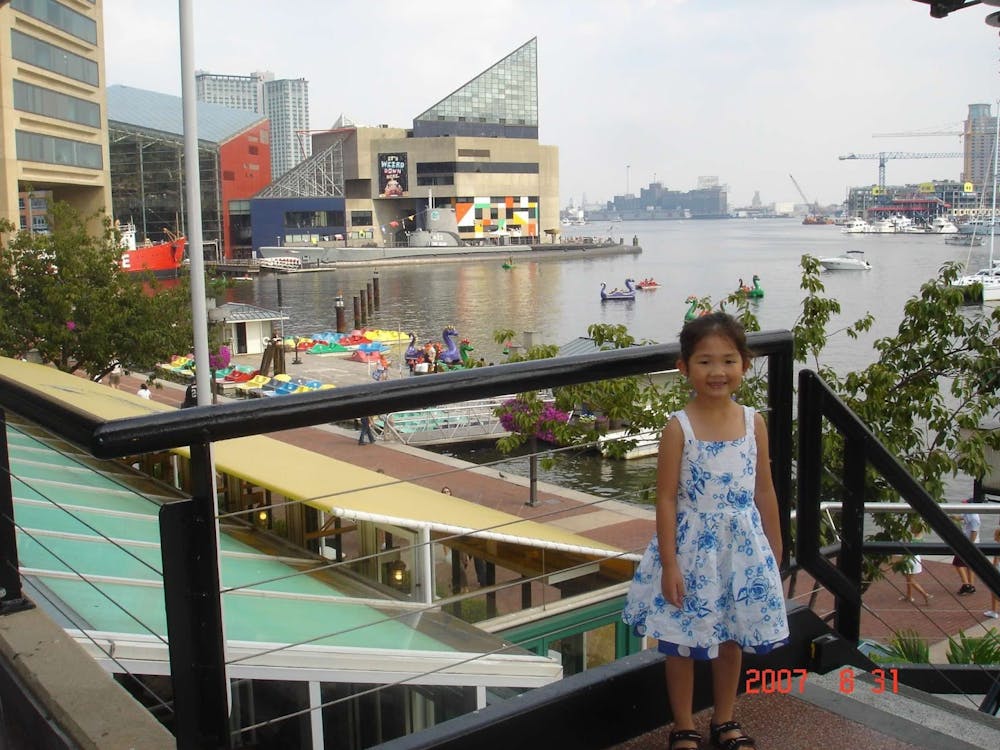
I will never forget the day I was accepted into Hopkins. Not because it was rosy and life-changing. Antithetically, it seemed that everyone thought the world would end that day. It was Friday, March 13, 2020, which became our last day of “normal” school before everything shut down due to the pandemic.
Now, my graduation gown stares at me from my closet, a self-imposed reminder that my time at Hopkins is almost over. How did we get here already?
Four years ago, everyone thought I had hit the jackpot. After many college tours, information sessions and applications, I had gained admission to a highly coveted “elite university” that so few from my high school had been able to attain in previous years. Of course, my imposter syndrome only intensified when I arrived here and learned that many of my friends had attended schools where the norm was to go to a top university. Many had parents who were physicians or professors or lawyers. For them, going to a top university was a given, so they seem to forget the immense privilege they have to be at Hopkins.
I know that this discourse is nothing new. But Hopkins was by no means my dream school as it had been for many of my peers. My eyes had been set on other schools, in more familiar cities, that were slightly less competitive. I had applied to Hopkins on a whim; it was the last application I wrote and the last decision I received out of many.
I was extremely hesitant to commit to Hopkins. I agonized over the decision for weeks. What if I ended up regretting going to Hopkins? I knew almost nothing about Baltimore, having only visited Hopkins once for an admissions tour, which I ended up disliking. I grew up visiting family in Washington, D.C. often, so that familiarity somewhat assuaged my fear of moving to a new city.
But, recently, I discovered this photo of myself in Baltimore’s Inner Harbor as a child. I honestly don’t remember that trip at all. We must’ve taken a day trip to Baltimore while visiting D.C. But here I was, in front of the dragon boats and multicolored panels of the National Aquarium.
It’s the same place where my family and I took photos before they dropped me off at my freshman dorm. The red, green, yellow and white panel of the aquarium is still there. I know this seems silly; many Hopkins students arrive here having never visited the East Coast. But part of me finds so much comfort in trying to tease out the symbolic meanings of the past. Maybe Baltimore was meant to be all along. Finding this photo reminded me how lucky I am to have some family ties to this area — unlike my family members who, at my age, had to move to new countries alone.
What has fueled me has been reminding myself of the significance of my attending Hopkins when so few in my family have had similar opportunities. My ancestors fled war and poverty in China and went to Mauritius, a small island near Madagascar, where they didn’t know anyone. My parents each left Mauritius in search of better opportunities far from home in Singapore and in the United States. Theirs is a classic story of immigrants chasing the elusive “American Dream.”
My friends know that I could go on about being Mauritian forever. But every time I meet someone new who asks about my family, I am again struck with this idea of generational context. I carry with me the legacies of generations of my family who have each sacrificed comfort and familiarity to pursue a better life for the next generation. For me, there is so much meaning imbued in my family’s migrational history that has enabled me to reach where I am now.
My first college class was during the height of the pandemic over Zoom: Advanced French for Writing. My last class was a History Research Lab on the Asian Diaspora in Baltimore and Washington, D.C. Neither of these were necessary for my primary major, but they were both so impactful for my personal growth and interdisciplinary training. I’m so grateful to have taken niche social sciences classes that have fundamentally changed the way I approach global issues and research processes. Most importantly, studying the social sciences has enabled me to better understand my family’s history.
My family has made all of my hopes and dreams possible. I owe all of my success to them and to their courage in moving to new places. And I know my four-year-old self would be proud to know that I ended up living in and, unexpectedly, loving Baltimore.
Estelle Yeung is from Clinton, N.J. and is graduating with a degree in Public Health Studies and International Studies.





